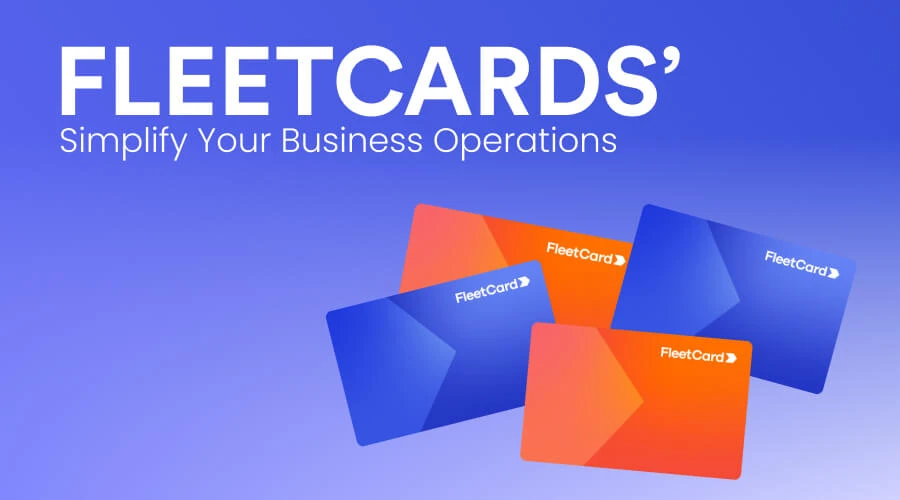Every gallon pumped comes with up to 8 cents discount, directly translating these tiny chips into big game-changers for businesses with large vehicle fleets. But the magic doesn’t stop there – the benefits extend beyond the pumps to discounts on maintenance and other vehicle-related services. You’d be surprised to learn that these cards are not just about saving money but managing it wisely as well; providing detailed purchase records that allow you to track every penny spent across your fleet. Saving is the first step. You are on your way to financial control!
Fleet cards are mighty keys to unlocking substantial fuel savings. Fleet cards offer numerous benefits, including convenient and comprehensive reporting, real-time purchase controls, cost savings through discounts and rebates, streamlined expense management, and enhanced security features. Additionally, they provide insights into fuel usage patterns and enable efficient vehicle maintenance tracking, ultimately optimizing fleet operations and saving time and money.
The Power of Savings with Fleet Cards
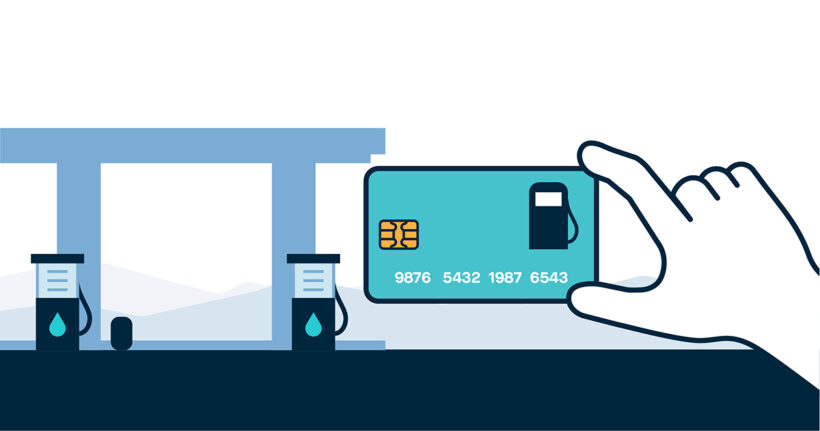
Fleet cards are more than just convenient payment options for fuel; they are also powerful tools for saving money. Let’s explore how these cards unlock substantial savings and contribute to the financial health of a business with a large fleet.
The primary benefit that fleet cards offer is the opportunity to save on fuel costs, potentially up to 8 cents per gallon. For businesses with large fleets, this reduction in fuel expenses can translate into significant overall cost savings. Imagine how much you could save if each time one of your fleet vehicles fills up at the pump, you’re getting a discount. Those small savings add up quickly and can lead to substantial reductions in operating costs over time.
Moreover, fleet cards often provide additional discounts on vehicle maintenance, repairs, and other related services. These discounts can contribute further to the overall cost savings for businesses. Think about it like a loyalty program – as you spend and use your fleet card, you’re rewarded with not only saving on fuel but also on necessary services like maintenance and repairs. It’s like being handed a coupon every time you swipe your card.
This goes beyond just feeling good about saving – these cuts in costs have a direct impact on a company’s bottom line, which allows more funds to be invested back into the business for growth and improvement. It’s essentially putting more money back into your own pocket, all while taking care of essential tasks like fueling up and maintaining your vehicles.
It’s important for businesses to evaluate the potential savings offered by different fleet card providers to determine which one best aligns with their specific needs and objectives. Not all fleet cards are created equal; some may offer better fuel rebates or more extensive discounts on services, so it’s crucial to weigh the options when making a choice.
By unlocking significant discounts on both fuel purchases and related services, fleet cards serve as indispensable tools for optimizing operational expenses and maximizing savings for businesses with large fleets.
Unveiling significant insights into how fleet cards hold the key to substantial cash flow control for businesses with extensive vehicle fleets, let’s now delve into exploring how these cards aid cost management.
How Fleet Cards Aid Cost Management
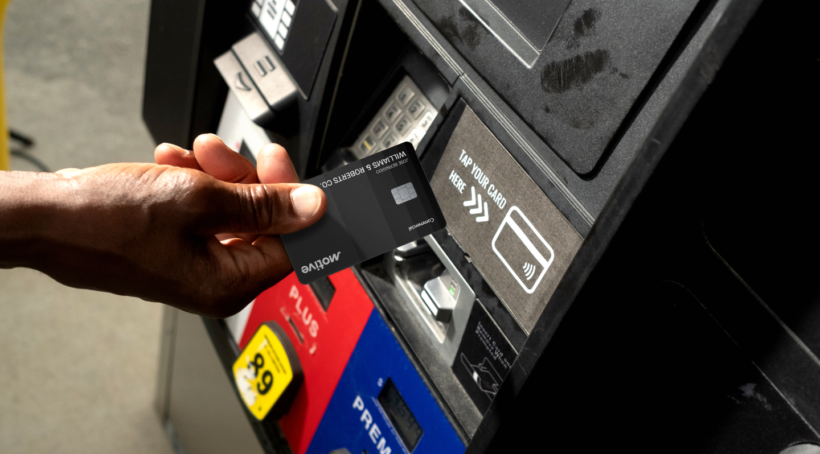
Fleet cards are not just for purchasing fuel; they are a powerful tool for managing the costs associated with maintaining and operating a fleet of vehicles. With detailed purchase information provided by fleet cards, businesses gain greater insight into their expenses, leading to more informed decision-making.
Imagine having a fleet of vehicles, each requiring regular maintenance, and the need to track all these expenses for efficient budgeting. Fleet cards make it possible to monitor all fuel and maintenance expenses across the fleet. This means that every time a vehicle is refueled or serviced, the transaction details are captured and recorded. It’s like having a financial assistant ride along with each vehicle, meticulously recording every expense.
With this level of detail, businesses can gain better control over their budgeting process. They can identify patterns and spot areas where costs might be higher than expected, enabling proactive adjustments that could lead to significant long-term savings.
The ability to track purchases in real-time allows for immediate identification of any unusual or unauthorized transactions. For example, if a purchase is made at an unauthorized location or for an unauthorized product, the business will know right away. This level of control helps in preventing wasteful spending and ensures that company resources are used efficiently.
Consider a situation where a business has set specific limits on the type of products that can be purchased with the fleet card. If an employee tries to buy something outside those established limits, such as non-fuel items, the transaction can be flagged immediately, preventing unnecessary spending.
Moreover, the detailed data provided by fleet cards facilitates predictive analytics. By analyzing historical fuel and maintenance data, businesses can forecast future expenses more accurately. This allows for strategic decision-making when it comes to planning and allocating financial resources for the fleet.
Overall, fleet cards offer businesses an extensive suite of tools to improve their cost management efforts. From precise expense monitoring to setting controls and optimizing budget allocation, fleet cards play a crucial role in helping businesses achieve greater financial efficiency.
By utilizing the wealth of data provided by fleet cards, businesses can make proactive decisions that lead to cost savings and improved overall financial health.
In moving towards understanding how businesses harness numerous benefits from fleet card programs, let’s explore an array of ways companies capitalize on volume discounts and tax savings.
Business Value: Volume Discounts and Tax Savings
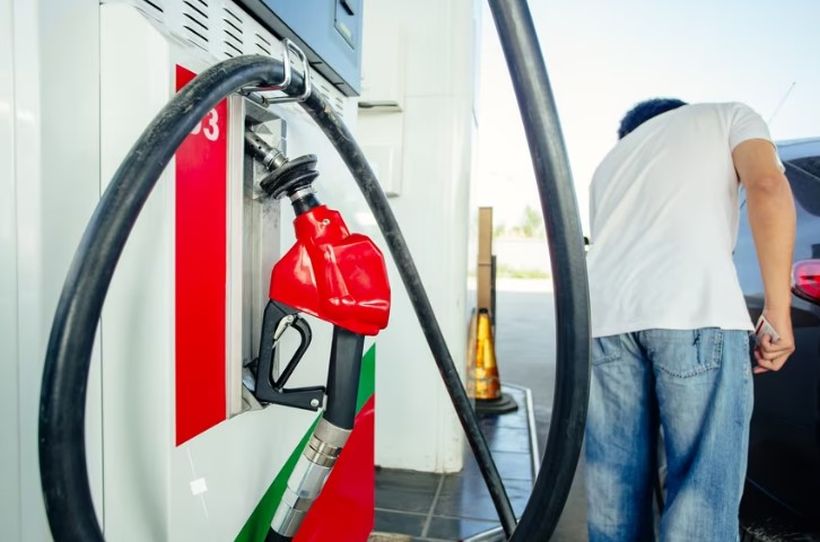
When you have a fleet of vehicles, every penny counts. That’s why fleet cards provide significant advantages when it comes to saving money on fuel and maintenance services through volume discounts. Here’s how it works:
Volume Discounts: Fleet cards work by consolidating your purchasing power. When all your drivers use the same fleet fuel card, you can negotiate better prices for fuel based on the large volume of purchases made. Just like buying in bulk at the store gives you a lower unit price, the more fuel you buy using the fleet card, the more you’ll save per gallon. This scale can result in substantial savings for your business over time, especially if you have a sizable fleet.
Aside from fuel purchases, you can also benefit from volume discounts on maintenance and service expenses. Having a dedicated fleet card allows you to track all vehicle-related expenses in one place, providing clear visibility into your spending patterns and enabling you to negotiate better deals with service providers based on the total volume of business.
Tax Savings: Another advantage of utilizing fleet cards is their integration with tax reporting systems. With detailed transaction data captured by the fleet card, businesses can simplify tax calculations and ensure accurate reimbursement and deduction processes. The ability to categorize and track expenses for individual vehicles or drivers not only streamlines tax reporting but also helps substantiate tax deductions with precise documentation.
Remember to liaise with your accounting team or financial advisor to fully grasp the potential tax benefits associated with leveraging fleet cards within your business operations.
Leveraging your fleet card purchasing power doesn’t just translate to upfront cost savings; it establishes a strategic financing tool that yields benefits in terms of both current and future expenditures.
Security and Ease with Online Account Management
One of the most valuable aspects of fleet cards is their ability to provide enhanced security for business expenses. Managing a fleet often involves trust, and businesses need to effectively control spending. Fleet cards empower companies to set specific spending limits for each card, ensuring that employees’ expenditures remain within the budget, providing peace of mind and preventing overspending.
Moreover, when it comes to purchasing fuel or other products, businesses can control the specific locations where the cards can be used, as well as what types of purchases are allowed. For instance, if a company only wants its drivers to purchase fuel and not other items at a gas station, they can control this through the online management platform. The ability to establish clear restrictions on spending enhances security and reduces the risk of unauthorized transactions.
Real-time transaction tracking is another important feature offered by fleet card providers. Businesses can monitor all card activities as they happen, giving them immediate insight into how funds are being utilized within their organization. This level of real-time visibility can be invaluable for detecting irregularities or potential misuse of company resources and provides a layer of oversight that minimizes the chances of fraudulent activity going undetected.
The centralized platform for online account management offers unparalleled ease in managing and monitoring all card activities. Imagine having a single dashboard where you can view all transactions associated with your fleet cards, thereby streamlining the process of expense tracking and financial management across your entire organization.
For instance, if an unusual transaction occurs late at night when your drivers are supposed to be off-duty, you would receive an instant notification alerting you to this abnormality. You could then quickly take action, potentially preventing any further unauthorized use of the card.
In essence, these online account management tools ensure that every penny spent by your team is accounted for while providing flexibility and control over business expenses.
Now that we’ve seen how fleet cards offer enhanced security features and comprehensive online account management tools, let’s uncover how these cards also provide exclusive discounts and rewards.
Maximizing Driver Perks: Rebates and More
Whether you’re a fleet manager or a driver, taking full advantage of the incentives that come with fleet cards is crucial. Here’s how you can make the most of these driver perks.
First off, fuel rebates are a significant perk that can lead to substantial cost savings in the long run. For example, with Valero fleet fuel cards, the fuel rebate program offers up to 8 cents per gallon based on the number of gallons purchased at specific locations.
Making the Most of Fuel Rebates
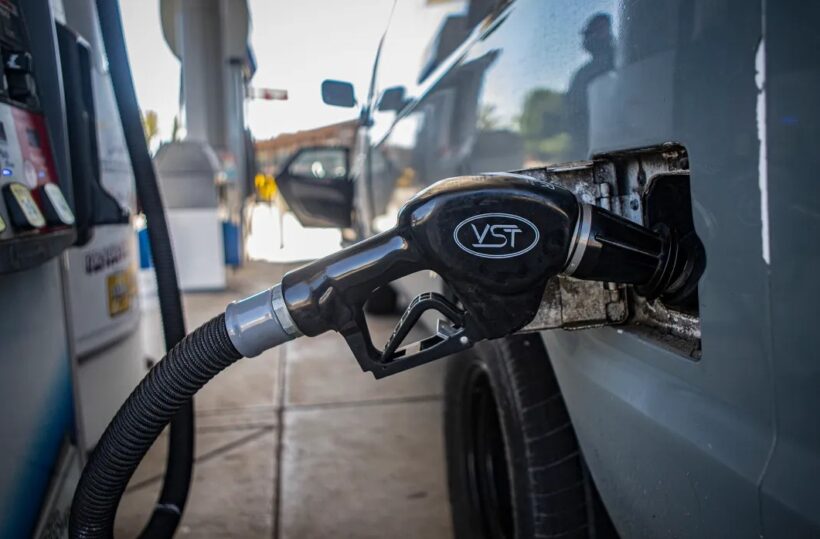
Taking advantage of fuel rebates involves understanding the terms and conditions and implementing strategies to maximize their benefit. This may include consolidating fuel purchases at specific locations to reach higher rebate tiers. By focusing fuel purchases at participating locations, drivers and businesses can see a noticeable return on their expenses.
Some may think, “Is it worth the effort?” The reality is, every penny counts when it comes to business expenses, and those pennies add up over time. So, being diligent in taking full advantage of these rebates can lead to tangible savings that positively impact the bottom line.
Beyond fuel rebates, some fleet card programs also offer discounts on vehicle-related products and services, ranging from auto parts and tires to maintenance services and even hotels. For drivers on the road, access to discounted hotel stays through their fleet card provider can be a particularly valuable perk, especially for long-haul trips.
For instance, imagine a team of drivers embarking on a cross-country journey for a business operation. With their fleet card, they can benefit from exclusive discounts at partner hotels along their route. Not only does this save them money on accommodation expenses, but it also ensures that they have convenient and comfortable lodgings during their travels.
By actively seeking out and utilizing these discounts, both individual drivers and the business as a whole stand to benefit significantly. It’s all about making smart choices with your fleet card not only for fuel purchases but for other related expenses as well.
Driver perks provided by fleet cards aren’t just about making life easier on the road; they directly contribute to overall cost savings for businesses by reducing operational expenses and ensuring more efficient spending across the board.
Responsible usage and leveraging of these perks are vital for optimizing cost savings and realizing potential benefits for businesses. Now let’s explore how managers and business owners can harness reporting features in fleet cards to streamline operations and maximize efficiency.
Navigating Reporting Features of Fleet Cards

Understanding where and how your drivers use their fleet cards provides a wealth of business intelligence. The reporting features of fleet cards grant you detailed data on fuel consumption, vehicle efficiency, and driver spending patterns. This valuable information empowers you to make informed decisions that optimize route planning, mitigate operational inefficiencies, and enhance overall fleet management strategies.
By analyzing these reports, you can identify trends or anomalies in fuel consumption across different vehicles or drivers. For instance, you might notice that a particular vehicle consumes more fuel than average, signaling potential maintenance issues that need to be addressed promptly. This level of insight enables proactive maintenance scheduling, reducing the risk of unexpected breakdowns and associated costs.
Another benefit of leveraging reporting features is the ability to track driver spending behaviors. You can monitor purchase patterns and identify any discrepancies or unauthorized transactions. Furthermore, by having this information at your fingertips, you can proactively address any misuse of the fleet card, ensuring compliance with company policies and preventing fraudulent activities.
Let’s say you notice irregular fuel purchases on weekends when most vehicles are supposed to be off-duty. Upon closer examination, you discover that a few drivers are using their fleet cards for personal use. With this knowledge, you can implement controls or training programs to enforce proper usage and avoid unnecessary expenses.

